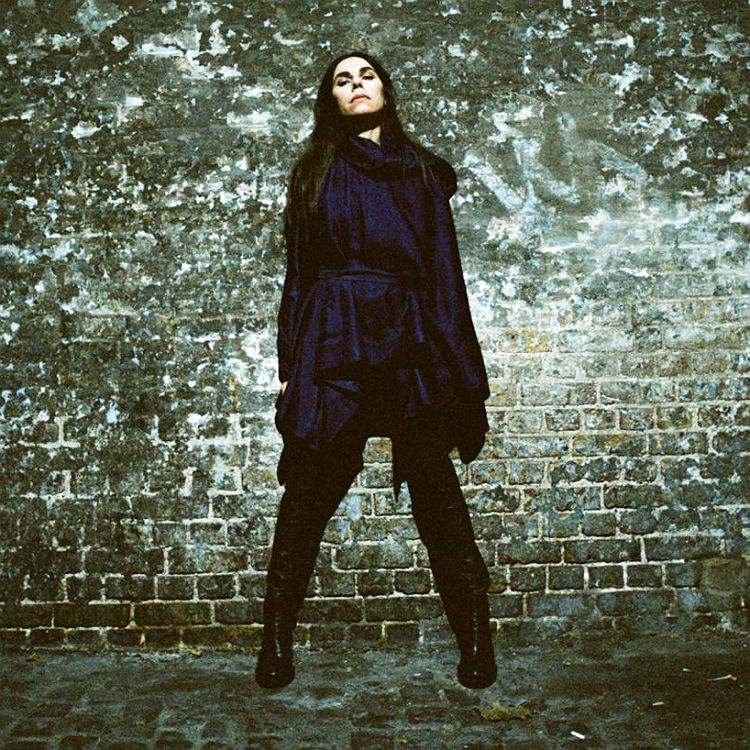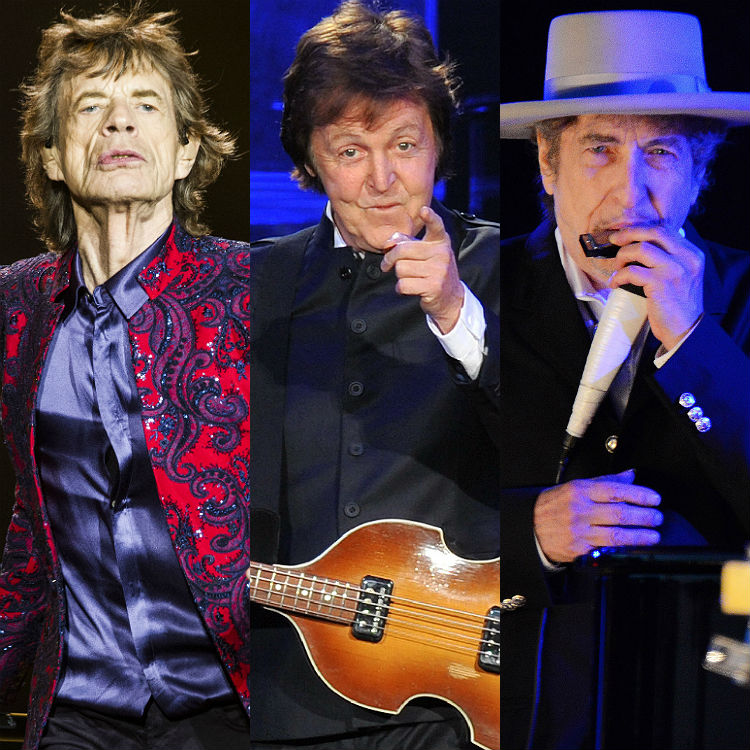One can often by crushed under the weight of expectation following your own success. Universally and critically adored, PJ Harvey's pristine 2011 effort Let England Shake ranked Aamong the finest albums of the year, but is listed alongside the best of all time. Few can follow a Mercury-winning album with the same gusto, but this was Polly Jean's second win after 2000's Stories From The City, Stories From The Sea.
She spent a decade proving that she needn't be anchored by a successful formula. PJ Harvey has seen over 20 years of reinvention, from alt-rock pin-up to leather-clad grunge queen, onto the experimental folk poet and everything in between.
For her next evolution, PJ Harvey hit the road - travelling to Kosovo, Afghanistan, and Washington with photographer/filmmaker Seamus Murphy over the course of three years. From war poet to travelogue writer, her experiences are brought to life here on The Hope Six Demolition Project. Come with us, as we wonder down the dusty roads with Polly Jean, to see if she still has anyway new to explore or discover...
1. 'The Community Of Hope'
Picking up the sonic thread where Let England Shake left us, but searing the edges with some of that Desert Sessions fire, 'The Community Of Hope' is developed from her poem Sight-Seeing, South of the River - describing the neighbourhoods she witnessed while being driven around Washington DC by The Post's own reporter, Paul Schwartzman. Her reportage of Ward 7 is a stream-of consciousness, recalling of 'shithole schools' and cracked streets lined with drug-addled zombies. Wrecked by greed, strip malls and consumerism, DC is painted as a wasteland void of any community whatsoever, rather than the blossoming centre of power for the free world. The politicians are less than pleased - slamming her as 'the Piers Morgan' of song, but in truth it's another acerbic and sideways Polly Jean classic.
2. 'The Ministry Of Defence'
With echoes of T.S. Eliot's The Hollow Men, a Bad Seeds-esque apocalyptic dirge continues the tour of the wasteland - this time taking us to a haunted landscape of Arabic graffiti, syringes, hair, human waste as Peej, full of vim but lament, mournfully describes "children's cries from the dark" and explains "this is how the world will end."
If Let England Shake was taking us to the horror of war, here PJ Harvey is taking us straight to the heart of the aftermath.
3. 'A Line In The Sand'
Harvey's heavenly falsetto invites into a glitterball of sounds, unnervingly backed by horns and discordance, while she spills her heart to bring a distant warzone much closer to home - singing of 'displaced families eating horses hooves', people killing each other for furs, and thousands of the displaced being killed by hand. While the mainstream media may pay not mind to the suffering of non-English speakers, PJ beautifully gives a voice to the voiceless.
4. 'Chain Of Keys'
Crumbling houses, overgrown gardens, broken elders who've seen unknown attrocities - these are the harrowing landmarks that PJ marches us down to a military beat and Tom Waits-esque horror soundtrack. By this point in proceedings, you realise that The Hope Six Demolition Project is made up less of 'stand out tracks', and more of a satisfying thread to lead you along on their journey.

5. 'River Anacostia'
The rumbling refrain of the humming of 'Wade In The Water' opens into a tribal drum beat, before Harvey chimes in with the fullest of her most heavenly elegiac voice to float us down Washington's neighbouring 'forgotten' river, witnessing Jesus talking to fallen trees and ask 'what will become of us', wincing as she sees pollution and destruction where nature, beauty and the soul should be.
6. 'Near The Memorials To Vietnam And Lincoln'
One of the record's most effervescent moments, as the titles stands tall as probably the strongest earworm moments of The Hope Six Demolition Project. This time we're taking on an exploration of the underworld and the hidden gaps that stand between so much pomp and history - this is where real life lies. A true album highlight.
7. 'The Orange Monkey'
I'm not going to pretend to even be able to slightly allude to what the hell Harvey is talking about here. On this record, this certainly makes for the most dense and impenetrable piece of prose, but while the meaning may remain elusive, the feeling is pretty complete.
8. 'Medicinals'
A Dylan-esque delivery met with a jaunty romping rhythm makes this a pretty satisfying saunter, while we're taking on a journey through time - from an era of untouched land and a happy native people, through to a sad concrete empire over a downtrodden, once proud people now reliant on meds, rather than nature. Another scathing commentary, but a pretty complete gem.
9. 'The Ministry Of Social Affairs'
The closest we come to the PJ Harvey of old, as the album wonderfully melts into a pool of boiling and sultry molten blues, climaxing to become increasingly unhinged, as if the mind of the traveller on this dark journey is becoming crushed by all the discontent that's been witnessed.
10. 'The Wheel'
And then that darkness takes a twist in this almost prog rock tapestry of handclaps, folk, guitar noodling, horns and choral work as PJ Harvey delivers one of her finest moments as she journeys to Kosovo to meet refugees first-hand. Synesthesia is the mental state where one can hear colour, but 'The Wheel' encapsulates this album's ability to fully immerse the listener in the location of the journey, and the experiences of its people - the sights, sounds, smells, history, horror and beyond. She's painting with sound, and what a sight it is to behold.
11. 'Dollar, Dollar'
A distant busy street scene is recreated by absorbing atmospherics, as we're told of a young boy reaching through the hustle and bustle to beg for spare change. The sounds of far-flung lands blend with a sombre saxophone outro - as we drift above the scene to observe and realise that at the heart of all of the stops we've made on this trip with Harvey is an ultimately human experience. Next time you hear a far-flung foreign location on the news, remember that there are people and lives behind the statistics.
Verdict
If Let England Shake was PJ Harvey channelling her inner war poet to show the true depth of the tumultuous nature of conflict, then The Hope Six Demolition Project sees her using her music as much more a journalistic vehicle - not as a simple means of holding a mirror to the scenes on display in these modern deprived areas, but also to shatter the mirror and hold the shards up to the light as we inspect the cutting consequences of gentrification, colonialism, capitalism and beyond.
In doing so, she creates a damning but fully immersive documentary of these undersung corners of the world that we live in. Naturally it doesn't make for the easiest listen, but a necessary one. She's not competing with herself, just saying what needs to be said.






















